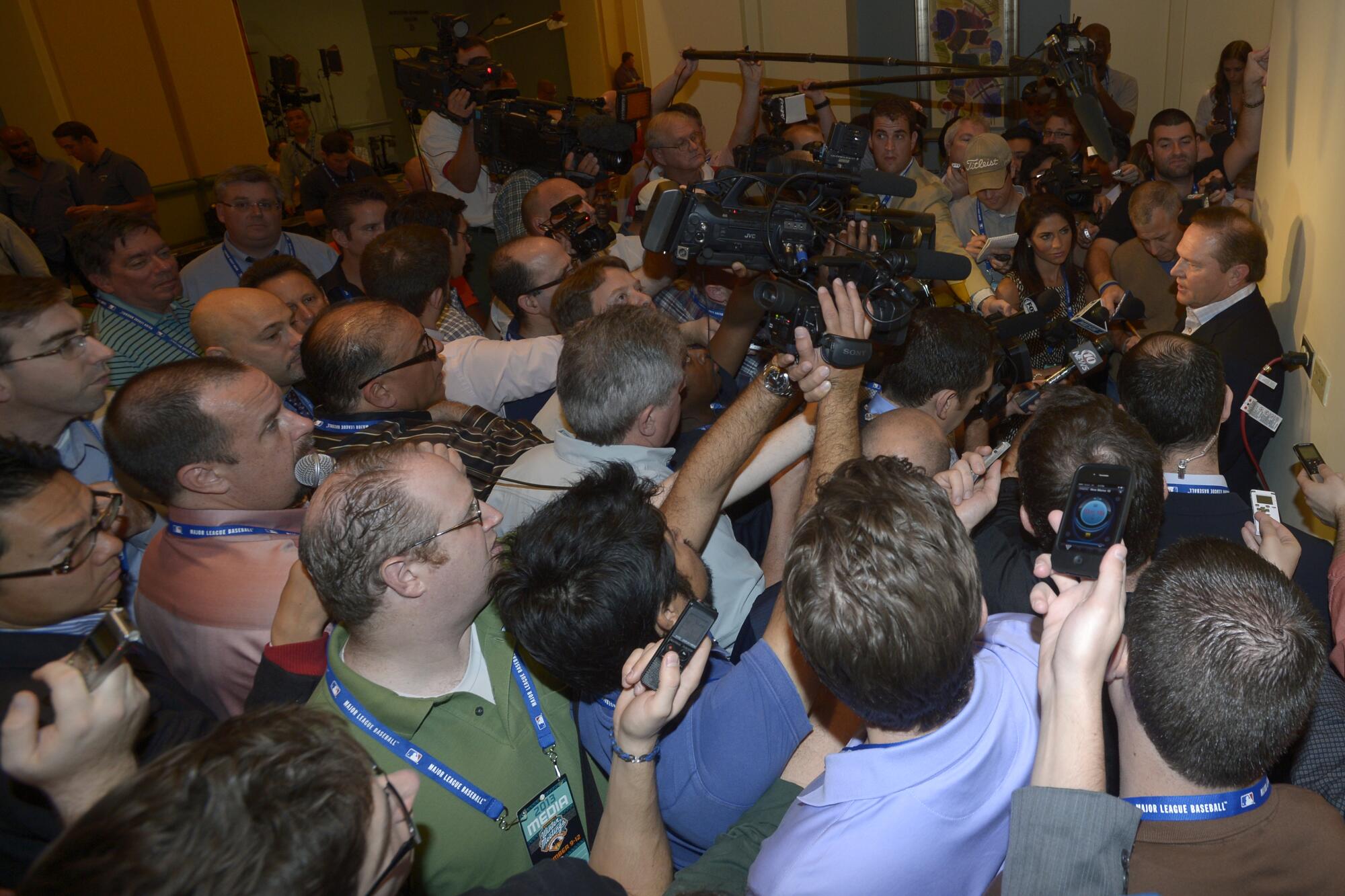
Baseball’s winter meetings have long outlived their usefulness. A pandemic wiped them out this year, but there should be no need to revive them.
The annual meetings would have started Monday in Dallas. What was once a frenzied week of dealmaking and a festival of publicity already was teetering on irrelevance, just like artificial turf and paper tickets.
The Rule 5 draft, in which teams can pluck an obscure minor leaguer or two to compete for the last spot on their roster, will be held as scheduled Thursday, but virtually. Each major league manager holds a news conference; that is expected to be done via Zoom sometime this month.
Major League Baseball runs its own cable channel, website and social media feeds. Same for the Dodgers. The league and its teams no longer are dependent on herding scores of writers into a hotel ballroom to get the word out.
The Dodgers should have the payroll wiggle room to add players this offseason and not surpass the competitive balance tax threshold.
Scouts used to roam hotel lobbies in search of intelligence on what players might be available and what teams might be interested. Veteran scouts have largely been laid off now, victims of evaluation driven by analytics and video, and more recently victims of the pandemic, the consolidation of the minor leagues and the establishment of what amounts to summer combine leagues for high school and college prospects.
Major league executives would practically barricade themselves in their hotel suites, lest they be intercepted by anyone with a notepad or a television camera. Once text messaging came into fashion, face-to-face meetings with executives from rival teams became strictly optional.
“The teams don’t give any insight. The interaction with the journalists, and having that forum, creates a level of excitement that frankly doesn’t exist in other sports.”
— Scott Boras
Stephen Strasburg, Gerrit Cole and Anthony Rendon can sign during the week of the winter meetings, as they did last year, and you’ve got news. Bryce Harper, J.D. Martinez and Jake Arrieta can sign after spring training opens, as they did in 2017 and 2018, respectively, and you’ve got next to nothing at the meetings.
Those six players share the same agent: Scott Boras, the undisputed star of the winter meetings.
On one day of the meetings, and only on one day, Boras would walk into the hotel lobby, followed frantically by dozens of reporters, eventually surrounded by more than a hundred. In a week where just about everyone in any position of power would avoid the spotlight, Boras welcomed it. He could dominate headlines from coast to coast.
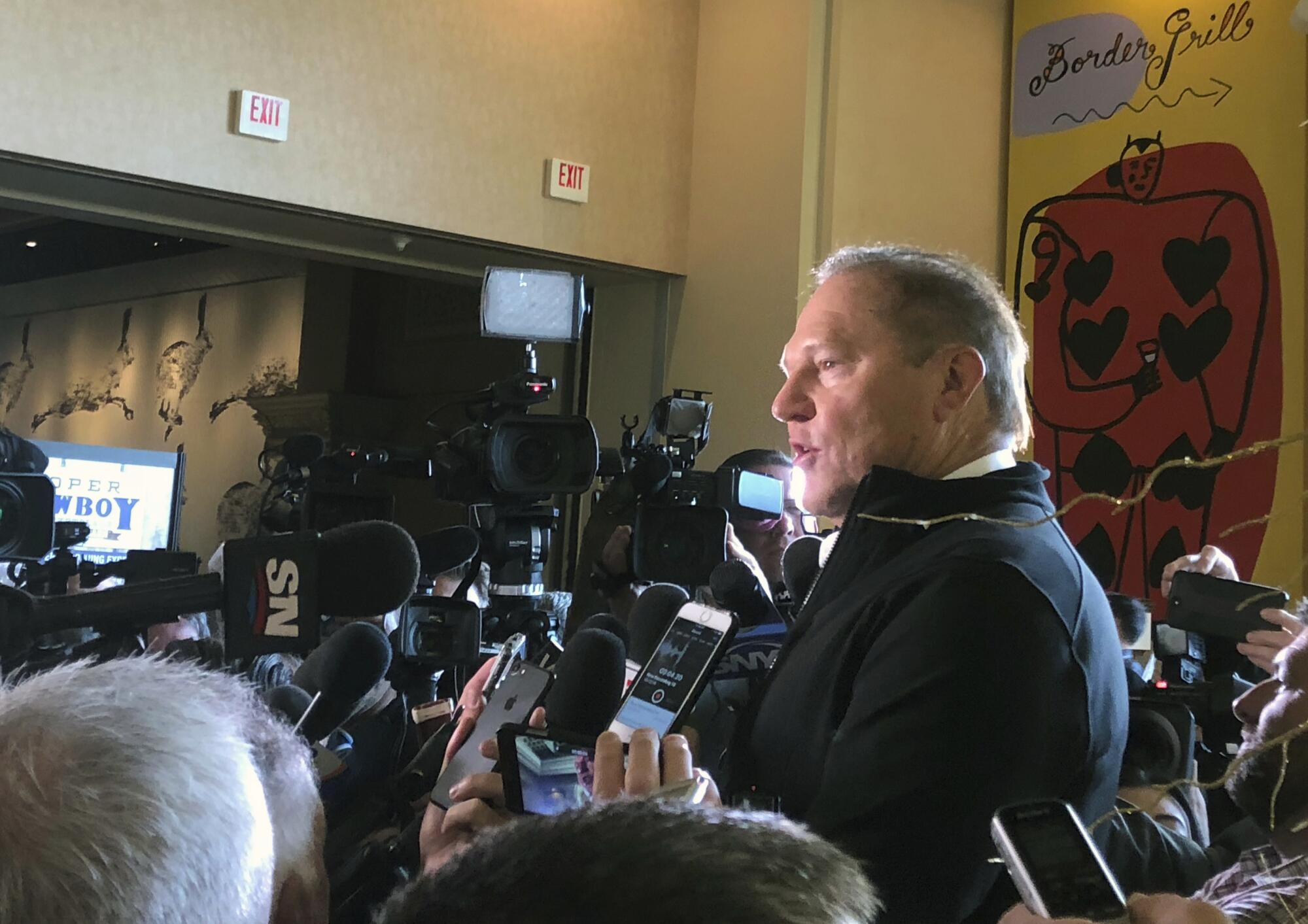
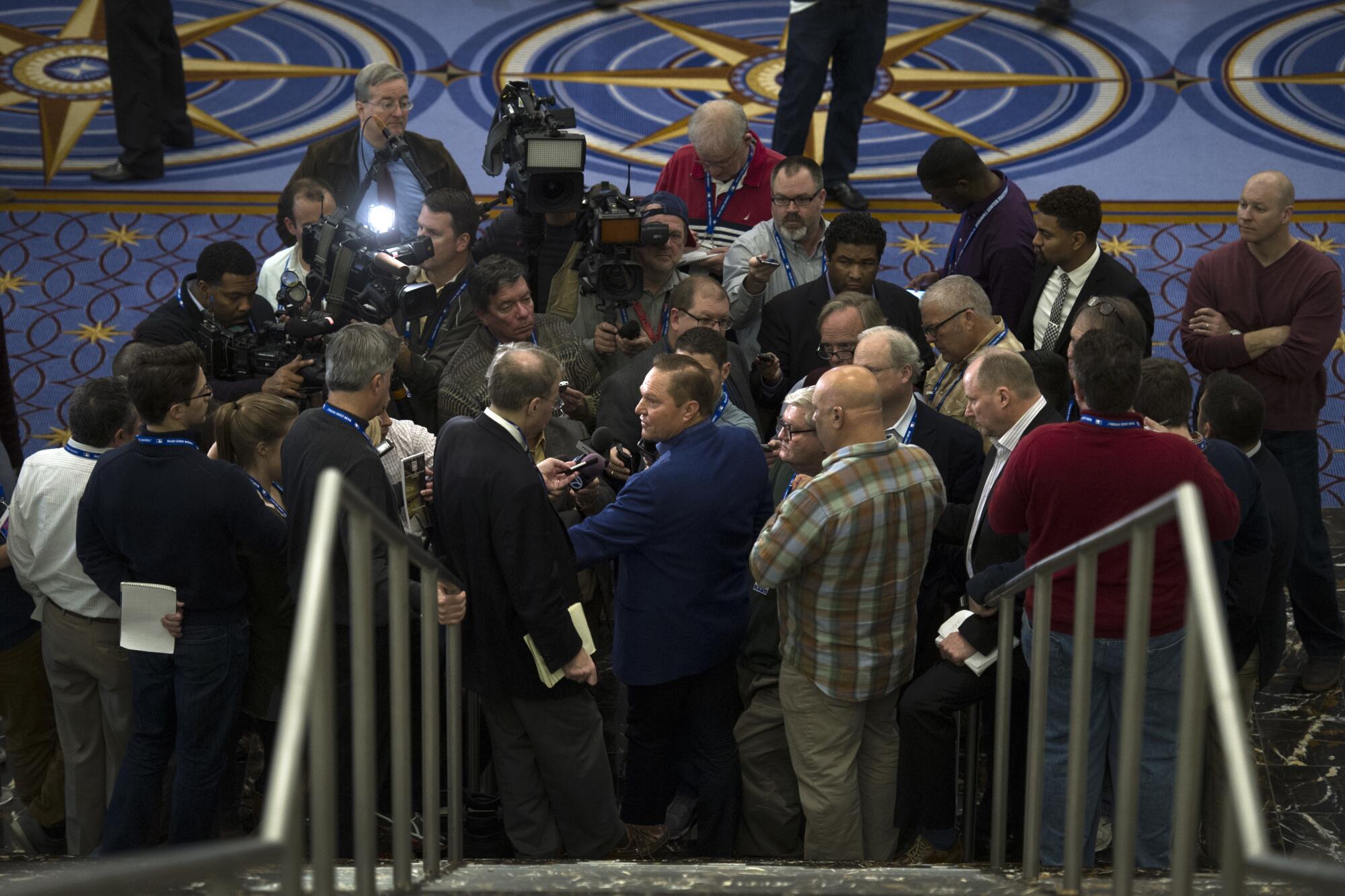
“When you do what I do, the crux of the winter meetings is about the people I represent,” Boras said. “When you’re an advocate for them, you have a steady dialogue with the principals that really provide the barometer of the baseball hot stove, which are the journalists.
“The teams don’t give any insight. The interaction with the journalists, and having that forum, creates a level of excitement that frankly doesn’t exist in other sports.”
In NBA and NFL free agency, the best players often sign on the first day.
“There is no deliberation,” Boras said. “There is no one team determining what another team is doing. There is no competitive dialogue about who has positioned themselves, what intellectual theories are being advanced.”
Boras prefers baseball’s approach to free agency.
“When you’re the thermometer, you’re not the turkey. We put the thermometer in, and the turkey tells us when it is done.”
— Scott Boras
“I would imagine that forum is anticipatory for fans,” he said. “It’s kind of the painting that starts in November and is completed by spring training. You have this anticipatory response as you see the painting continue to unfold for each team.
“It’s very different than the other sports. They don’t have anything like it.”
Boras throws out the ceremonial first metaphors every winter, even in a winter without meetings. He often hears about how he can take his time getting his clients signed each winter, but he said he does not control the timing of the market.
“When you’re the thermometer, you’re not the turkey,” he said. “We put the thermometer in, and the turkey tells us when it is done.
“That’s kind of how the winter meetings work. Sometimes the turkey is done rather quickly, because the heat is high early. If the temperature is low, then obviously the turkey takes longer to cook.”
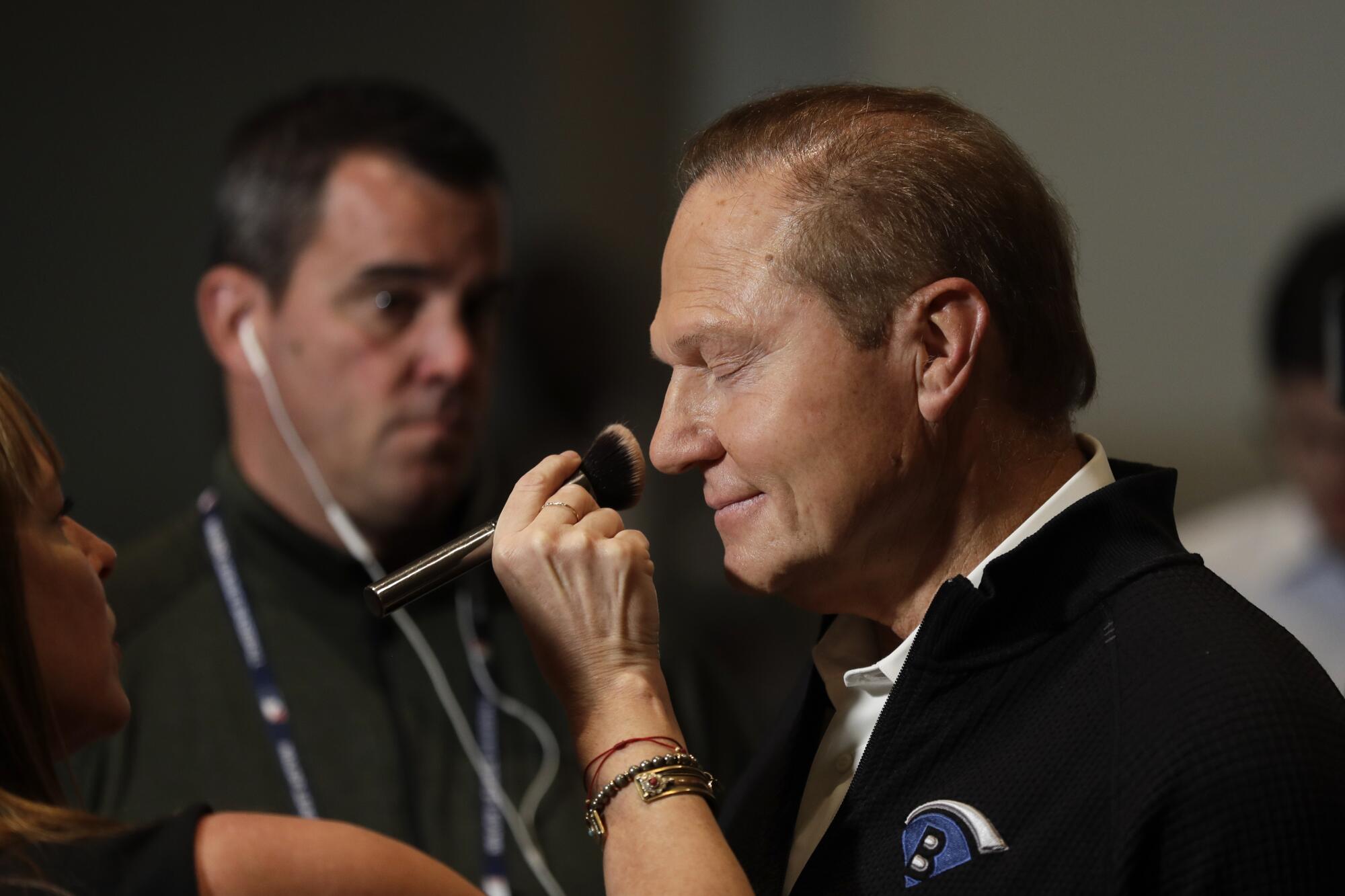
In the traditional Boras address, he scoffs at management claims of financial peril for teams, and for the league itself.
This winter is no different: Although commissioner Rob Manfred has said the 30 MLB teams lost $3 billion this season, and although Dodgers president Stan Kasten has said his team lost “well north of $100 million,” Boras said teams collected postseason national television and in-season local television revenue while paying 37% of salaries in the pandemic-shortened schedule.
Manfred has said teams make about 40% of their total revenue on game day, through tickets, concessions, parking and merchandise. The 2020 regular season was played entirely without fans.
“There’s no team in baseball that lost money last year,” Boras said.
Boras had advocated for a 2020 schedule extended into December, a suggestion the league publicly dismissed over concerns the coronavirus would surge toward winter, as indeed it has, and television networks that wanted the World Series to remain in October. He dismisses suggestions that the 2021 schedule might be shortened because, he said, owners have promised their local television partners a full season.
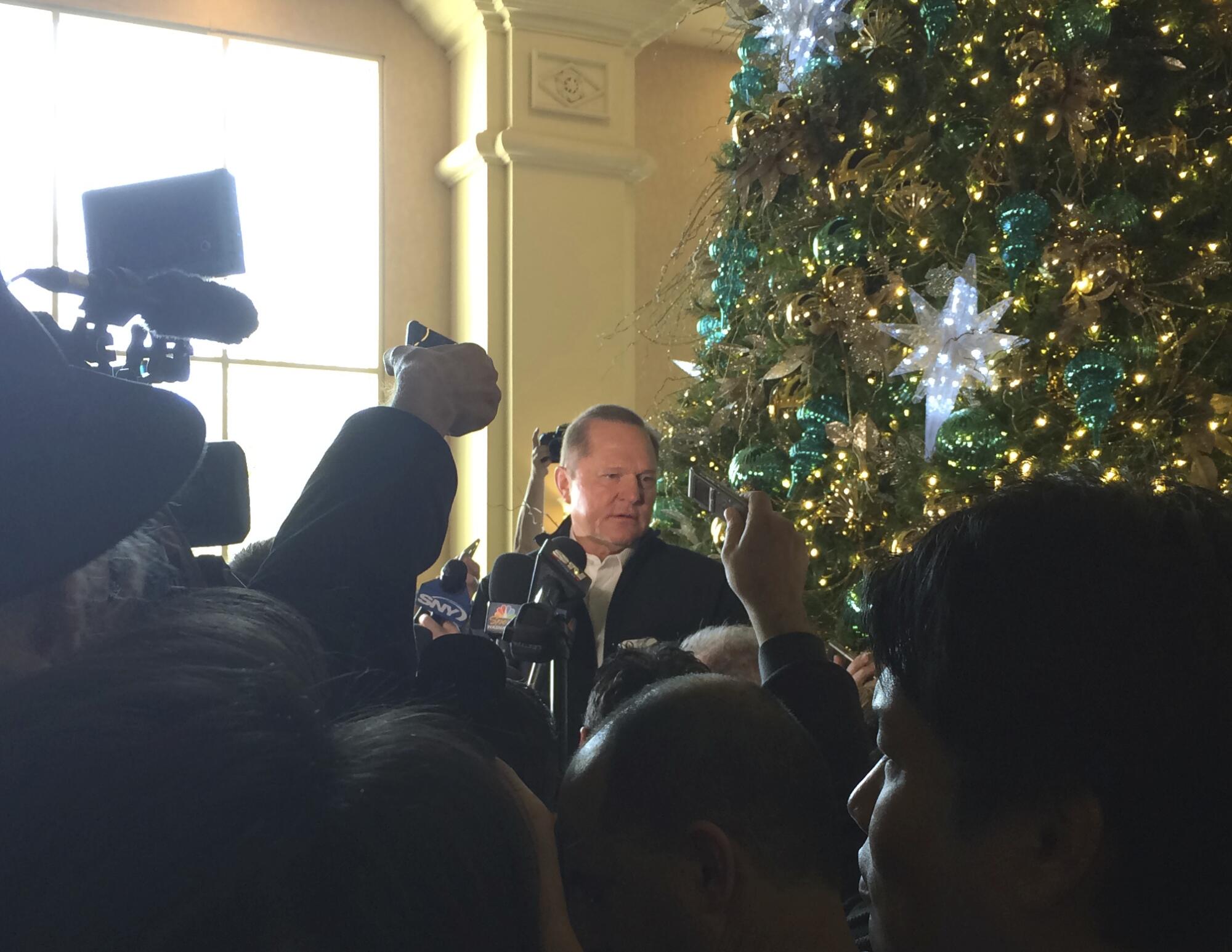
“So you better believe we’re playing a full season,” he said.
If this were the typical winter, Boras would take more questions, from whatever spot he stood in whatever hotel. This winter, he cannot do that, but that has not deterred him.
“This year,” he said, “we’re having a Zoom call with all the media.”
More to Read
Go beyond the scoreboard
Get the latest on L.A.'s teams in the daily Sports Report newsletter.
You may occasionally receive promotional content from the Los Angeles Times.












